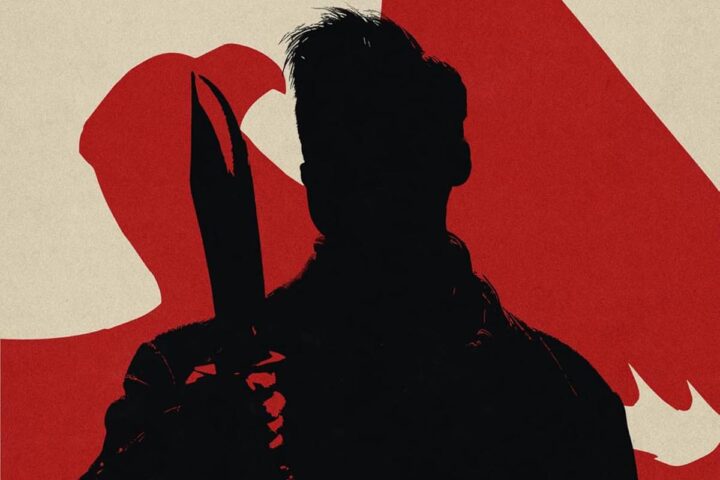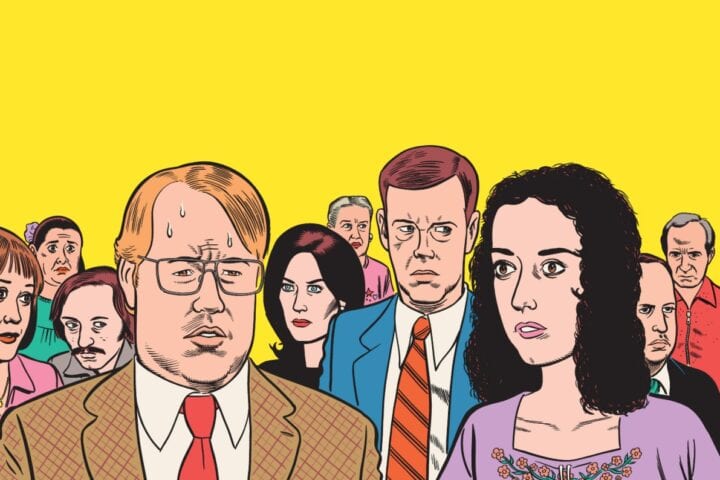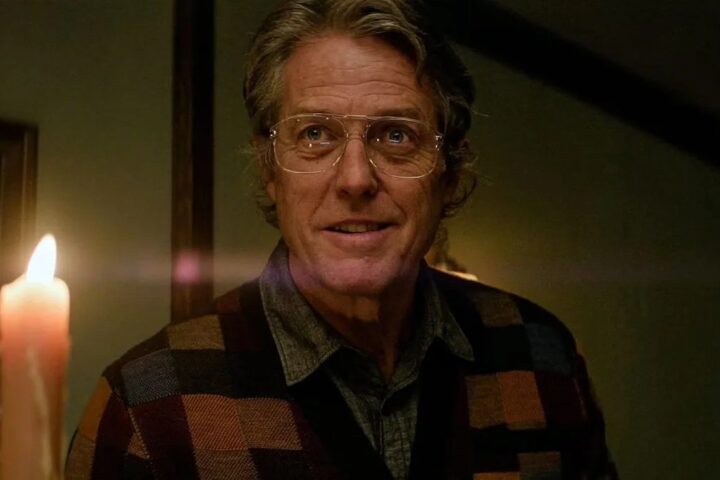Midway through The Man from U.N.C.L.E., the normally unflappable Napoleon Solo (Henry Cavill) finds himself in an electric chair about to be tortured by Rudi (Sylvester Groth), a scientist who worked for the Nazis and is now in cahoots with super-villain Victoria (Elizabeth Debicki). Before Rudi is about to flip the switch, though, he dives into a monologue, complete with a “once upon a time” beginning, in which he brags about the human experiments he conducted as a scientist during the war, with Napoleon about to be his latest test subject.
This scene is a jolt to the film’s system, injecting a sense of palpable horror into what had, up to that point, been a smirky, stylish throwback to 1960s-era spy thrillers: For a brief, shining moment, there’s a sense of something broader and more dangerous at stake than just Napoleon losing his cool and his reluctant KGB partner, Illya Kuryakin (Armie Hammer), losing his temper.
But the director at the helm of this big-screen adaptation of the ’60s TV spy series is Guy Ritchie, the tough-guy auteur who, as he’s proven ever since his 1998 debut, Lock, Stock and Two Smoking Barrels, is generally above such displays of genuine human feeling. Naturally, then, the sense of horror Rudi’s monologue evokes is immediately trashed when Kuryakin rescues Solo and Ritchie unleashes a perverse visual joke: As Solo calmly tries to decide what to do with Rudi in the foreground, Rudi—thanks to Kuryakin, who’s secretly fixed the wiring of the chair to make it work—is getting fried to death in the background. Solo’s “oh” after he turns around and witnesses the smoky aftermath offers a comically inhumane exclamation mark.
Not that the film is an entirely soulless snarkfest. One could read the central odd-couple pairing of Solo and Kuryakin as Ritchie’s own way of reconciling his cool-customer and sincere sides. Kuryakin’s main trait is his volatile temper, which composer Daniel Pemberton characterizes through a ramping up of electric guitars, and which Ritchie supports by turning the volume up on the music to near-deafening levels when the character’s on the verge of losing it. His sternness gradually melts in the presence of Gaby (Alicia Vikander) on a mission to find her German nuclear-scientist father; he’s forced to pose as her fiancé, and inevitably he begins to develop romantic feelings toward her. Of course, and this is typical of Ritchie, the interruptions that thwart their attempts at finally sharing a kiss become a running gag.
Temperamentally, Ritchie aligns more with the lithe, James Bond-like Solo: detached, above-it-all, eternally cool under pressure. Cavill’s sustained deadpan is astonishing in that regard, as Napoleon remains startlingly unfazed even in the opening car chase, directing Gaby behind the wheel in the manner of a machine giving instructions. To a considerable extent, Ritchie appropriates Cavill’s effortless sleekness as his own, with the filmmaker’s usual machismo and love of convoluted plots tamped down in favor of a relentlessly hip surface. His bits of formal playfulness become more palatable in such an unapologetically empty context, as in the rewind-flashback montages (akin to similar sequences in his two Sherlock Holmes films) and the split-screen effects that blur a raid on Victoria’s island compound into abstraction.
Ritchie’s chic insouciance reaches something of a subversive comic zenith, however, in an action sequence—Kuryakin trying to outrace a couple of villainous henchmen in a motorboat—that’s seen almost entirely from Solo’s safe vantage point from behind a truck. The image of Solo sitting behind the wheel, munching on food that he discovers in a basket on the passenger seat, while the explosive action takes place elsewhere sums up The Man from U.N.C.L.E. as a whole: utterly pointless, but not without its breezy, feathery pleasures.
Image/Sound
Arrow Video’s UHD doesn’t represent a major upgrade from Warner’s 2015 Blu-ray, and the transfer may even be sourced from the same 2K intermediate used for that earlier disc. Still, the Dolby Vision boost offers an even subtler color gradation in more naturally toned scenes and extra pop to the explosive pinks, yellows, and blues of the Mediterranean backgrounds where most of the film occurs. The extreme variations in light, ranging from near-darkness to deliberately washed out by sunlight, are handled with no contrast issues or loss of detail.
This release features the same Dolby Atmos track as the Warner Blu-ray, and it’s an immersive mix in both raucous action scenes and in quieter exchanges. Ambient noise and Daniel Pemberton’s score—a mix of ’60s pop, jazzy caper cool, and Morricone-esque guitar twang facsimiles—fill the surrounding channels while leaving dialogue clear in the foreground.
Extras
Arrow ports over all of the brief making-of featurettes from the Warner’s release, each of which unpacks a specific aspect of the production’s conception and creation, and the label supplements those with a host of new extras. Critics Bryan Reesman and Max Evry contribute a commentary track that doesn’t want for historical detail about the original series and the Cold War. They also delight in elaborating on every period-appropriate needle drop featured on the soundtrack. In addition to two panel discussions, one on the legacy of the original TV show and Ritchie’s adaptation and the other on the director’s career, the extras also include new interviews with co-writer/producer Lionel Wigram and actor Luca Calvani in which each man recounts his career.
Overall
Guy Ritchie’s breezy, engaging adaptation of the cult classic spy series receives a minor A/V upgrade and a bevy of new extras from Arrow Films.
Since 2001, we've brought you uncompromising, candid takes on the world of film, music, television, video games, theater, and more. Independently owned and operated publications like Slant have been hit hard in recent years, but we’re committed to keeping our content free and accessible—meaning no paywalls or fees.
If you like what we do, please consider subscribing to our Patreon or making a donation.



